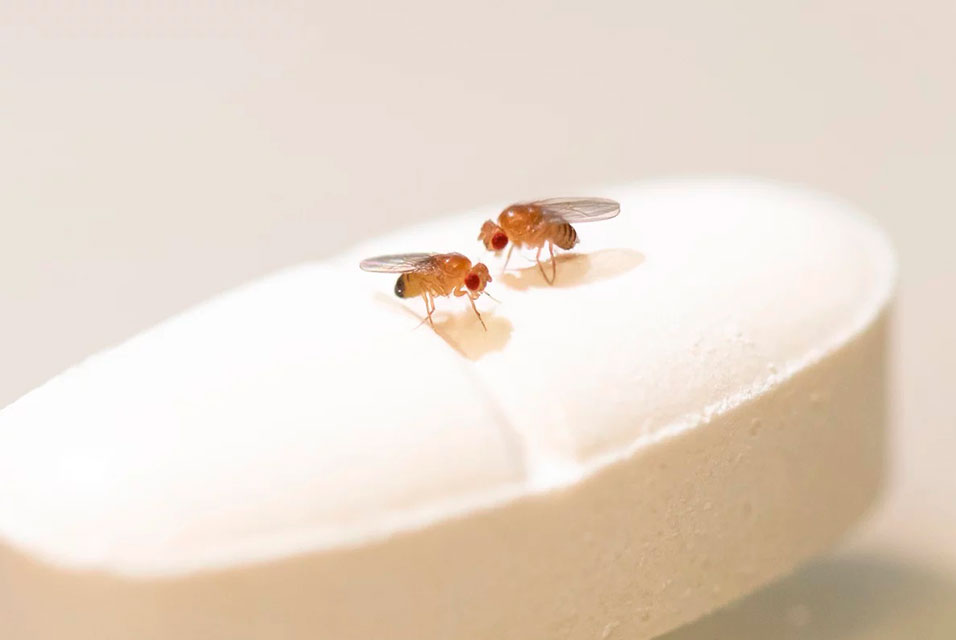COLOGNE.- The effect of medicines on women and men can differ significantly. This also applies to the currently most promising anti-ageing drug rapamycin, as researchers from the
Max Planck Institute for Biology of Ageing in Cologne and University College London have now shown. They report that the drug only prolongs the lifespan of female fruit flies, but not that of males. In addition, rapamycin only slowed the development of age-related pathological changes in the gut in female flies. The researchers conclude that the biological sex is a crucial factor in the effectiveness of anti-ageing drugs.
The life expectancy of women is significantly higher than that of men. However, women also suffer more often from age-related diseases and adverse drug reactions. “Our long-term goal is to make men live as long as women and also women as healthy as men in late life. But for that, we need to understand where the differences come from”, explains Yu-Xuan Lu, one of the leading authors of the study.
The researchers gave the anti-ageing drug rapamycin to male and female fruit flies to study the effect on the different sexes. Rapamycin is a cell growth inhibitor and immune regulator that is normally used in cancer therapy and after organ transplantations. They found that rapamycin extended the lifespan and slowed age-related intestinal pathologies in female flies but not in males.
Healthier life due to more autophagy
The researchers observed that rapamycin increased autophagy - the cell’s waste disposal process - in the female intestinal cells. Male intestinal cells, however, already seem to have a high basal autophagy activity, which cannot be further increased by rapamycin. The scientists could also see this effect of rapamycin in mice. Female mice showed increased autophagy activity after treatment with rapamycin. “Previous studies found that females had greater responses to rapamycin on lifespan extension than did males in mice, we now uncover an underlying mechanism of these differences using flies”, says Yu-Xuan Lu.
“Sex can be a decisive factor for the effectiveness of anti-ageing drugs. Understanding the processes that are sex-specific and determine response to therapeutics will improve the development of personalised treatments”, explains Linda Partridge, senior author of the study.









